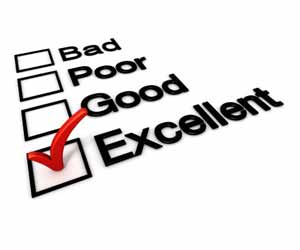Mystery Shopping Methodology
The methodology a mystery shopper uses depends greatly on the type of assignment they have. Some mystery shopping jobs are completed through the use of a simple questionnaire, while other assignments involve the mystery shopper investigating the product or service in much greater detail.

Most methodologies include some way in which customer satisfaction levels can be assessed ranging from hidden video and audio equipment to telephone shops in order to gather information. Telephone shopping entails obtaining information through a phone call to customer service centers, call centers or any venue in which an exchange from the business to the customer occurs over the phone. Other types of methodologies can include online shopping, a system in which the mystery shopper assesses their experience by shopping for items or booking tickets online. Purchase and Return shops are another popular method and involve directly evaluating how a business handles customers by having the mystery shopper return a product for a refund or an exchange.
Discrimination shopping is another mystery shopping method that is commonly employed and is ultimately used to evaluate whether or not the business or product discriminates in any way toward different customer demographics. Event tests are similar to regular mystery shops, which represents a methodology where the mystery shopper attends a conference, cruise or concert to evaluate the experience as a whole. Each type of methodology is different, ultimately used to measure a different aspect of the business. Thus, depending on the goals of the company and the area of their business they are hoping to examine, the methodology used by the mystery shopper will change. The types of practices mentioned: simple shops, questionnaires, telephone shops, online shops, purchase and return shops, discrimination and event tests all represent common methods of mystery shopping that most shoppers will at some point implement.


 Teach English in Asia
Teach English in Asia  Cruise Ship Jobs
Cruise Ship Jobs  Alaska Fishing Industry Jobs
Alaska Fishing Industry Jobs  Sharing Economy / Gig Economy
Sharing Economy / Gig Economy